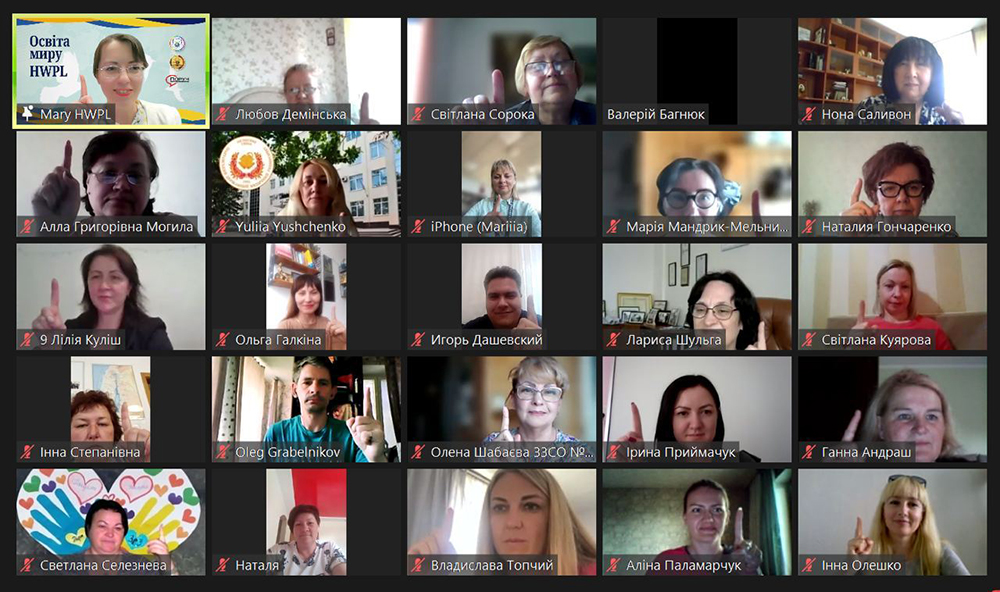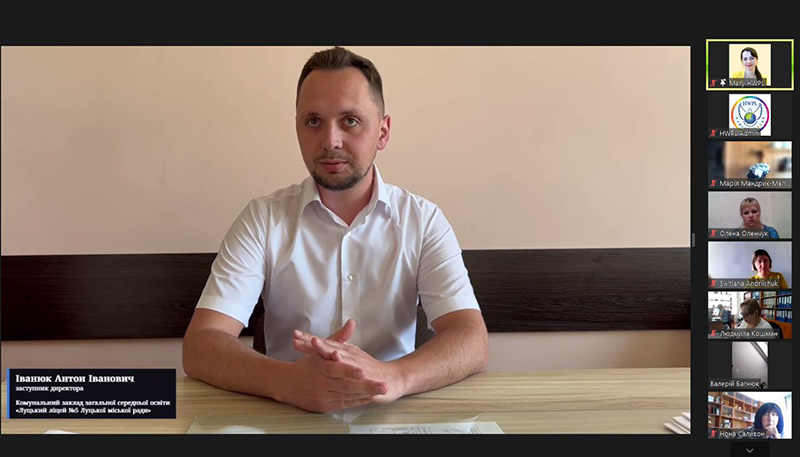“2023 HWPL Peace Education in Ukraine” Conference
On June 8, the ‘2023 HWPL Peace Education in Ukraine’ Conference was held. This conference, which was held under the theme of ‘Results and plans for the development of HWPL peace education in Ukraine’, had teachers teachers who took part by conducting the HWPL peace education in Ukraine in the first half of this year and 250 teachers who will be conducting the peace education in the future.

The peace educators of Ukraine started implementing the HWPL peace education in 2021. Despite the wartime situation that made it difficult to properly conduct regular classes, the teachers’ efforts to teach peace to students led to a peace education being taught in 21 elementary, middle and high schools and colleges; 1,290 students completed the peace education. Some schools are conducting the education with enthusiasm even in the midst of war, to the extent that they conduct the peace education in shelters.
This conference was prepared to develop HWPL’s peace education on a national level in order to provide healing and hope to Ukrainian students currently suffering from war and to prepare an educational foundation for all students to receive peace education. In addition, it was a time where best practices of HWPL’s peace education, which was conducted in 10 schools, could be shared and help strengthen cooperation with HWPL.

Regarding the results of HWPL’s peace education, Anton Ivaniuk, the Deputy Director of the communal institution of general secondary education Lutsk Lyceum No. 5 of the Lutsk City Council said, “Children are the future of the country and the people who will rebuild our country. In this chaotic world, gratitude, concern, sacrifice, forgiveness, good manners, abiding the law and courage are important values that are needed in spreading peace. We are proud of the young generation who have learned and know these things through the peace education.

Nataliia Kutsenko, Director of the Specialized Medical and Pharmaceutical College of Poltava State Medical University, said “Given the experience of the peace education project conducted at the college, it is appropriate and necessary for students to receive this education in college and university. I am of the opinion that similar projects should be introduced as compulsory courses in educational institutions such as Ukraine’s Ministry of Education and Science and Ministry of Health.”
Mariia Tyshchenko, Executive Director of the NGO Poruch and honorary doctorate of Malmö University (Sweden) explained that, “We will continue to build peace schools physically and institutionally to provide an environment in which human rights as a condition for the development of our children are put into practice. Peace education encourages the practice of non-violent communication, mediation and conflict transformation. We want goodness to remain in the hearts of our children.”













